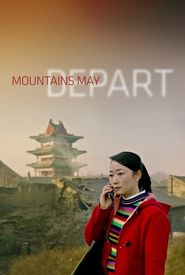Jia Zhangke, a multifaceted Chinese creative force, burst into the world on May 24, 1970, in the city of Fenyang, setting the stage for a life that would be marked by a profound influence on the realm of cinema.
As a renowned film and television director, Jia has left an indelible mark on the world of cinema, his innovative vision and artistic prowess elevating the medium to new heights.
Not only has Jia made a lasting impact as a director, but he has also demonstrated his versatility as a screenwriter, his words weaving together complex narratives that captivate audiences worldwide.
In addition to his work behind the camera, Jia has also proven himself to be a skilled producer, bringing his unique perspective to the forefront of the production process.
As an actor, Jia has showcased his range, taking on a variety of roles that showcase his remarkable talent and dedication to his craft.
Finally, as a writer, Jia has demonstrated his mastery of the written word, his stories and characters coming alive on the page in a way that is both poignant and powerful.
Throughout his career, Jia Zhangke has consistently pushed the boundaries of what is possible in the world of cinema, leaving a lasting legacy that will be felt for generations to come.
Jia, a visionary educator and mentor, has made a profound and lasting impact on the next generation of filmmakers, serving as the esteemed dean of the Shanxi Film Academy of Shanxi Media College and the Vancouver Film School of Shanghai University.
His own academic journey is a testament to his dedication to the craft, as he graduated with honors from the prestigious Literature Department of Beijing Film Academy.
Jia Zhangke is frequently regarded as a pioneering and influential figure in the realm of contemporary Chinese cinema, particularly within the context of the "Sixth Generation" movement, a collective of esteemed filmmakers that also encompasses the notable talents of Wang Xiaoshuai, Lou Ye, Wang Quan'an, and Zhang Yuan, among others.
Jia's initial cinematic endeavors, comprising a loose trilogy rooted in his native Shanxi province, defied the conventional boundaries of China's state-run film apparatus, thereby earning the coveted label of "underground" films.
In stark contrast, the release of his fourth feature-length production, The World, in the year 2004, marked a significant turning point in Jia's professional trajectory, as he was subsequently granted official recognition and endorsement by the Chinese authorities.
Internationally, the cinematic endeavors of Jia have garnered widespread critical acclaim, with his film "Still Life" having won the prestigious Golden Lion award at the renowned Venice Film Festival. Additionally, his work has been recognized at the esteemed Locarno Film Festival, where he received the prestigious Leopard of Honour award in the year 2010. Furthermore, his contributions to the world of cinema have also been acknowledged at the prestigious Cannes Film Festival, where he was awarded the Carrosse d'Or lifetime achievement award in the year 2015.
Slavoj Žižek, a prominent Slovenian philosopher, has publicly acknowledged Jia Zhangke's exceptional talent, designating him as "one of the top directors in the world today". This distinguished endorsement serves as a testament to the profound and lasting impact Jia has had on the cinematic world, solidifying his position as a visionary filmmaker of international renown.





































